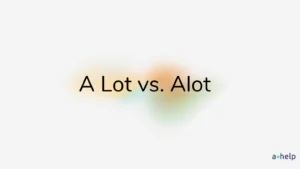When it comes to the words “toward” and “towards,” many people find themselves a bit puzzled. Are they the same? Is one more correct than the other? The truth is, both words are correct and have the same meaning. They are used to indicate direction or movement. However, the choice between “toward” and “towards” often depends on where you are in the world. In American English, “toward” is more commonly used, while “towards” is preferred in British English and other English-speaking regions outside the United States. Understanding this regional preference can help clear up any confusion and make your writing more consistent with your audience’s expectations.

✅ AI Essay Writer ✅ AI Detector ✅ Plagchecker ✅ Paraphraser
✅ Summarizer ✅ Citation Generator
Definition and Similarities
“Toward” and “towards” are prepositions that play a crucial role in the English language and grammar. They are used to indicate direction or movement, helping to describe where something or someone is going. For example, you might say “She walked toward the store” or “He moved towards the door.” In both cases, these words help to convey a sense of movement or direction towards a specific point or area.
Despite any confusion that might arise, it’s important to understand that “toward” and “towards” have the same meaning. They are interchangeable in most contexts, and the choice between them often comes down to regional preferences or personal writing style.
Whether you use “toward” or “towards,” the intended meaning remains clear, and the sentence’s overall sense is unaffected. This flexibility makes them versatile tools in the English language, allowing for effective communication across different regions and contexts.
Regional Preferences for Using Toward VS Towards
When it comes to the use of “toward” and “towards,” there’s a noticeable regional difference. In American English, “toward” is the preferred form. This means that in the United States, you’re more likely to hear someone say, “He walked toward the park,” rather than “towards the park.” This preference is reflected in American writing, where “toward” is commonly used in books, newspapers, and other written materials.
On the other hand, “towards” is more commonly used in British English and other English varieties outside the United States. In the United Kingdom, Australia, Canada, and other English-speaking countries, people tend to say and write “towards” more frequently. For example, you might read in a British novel, “She ran towards the river.”
These regional preferences are interesting because they show how language can vary from one place to another.
Are There Any Exceptions and Special Cases?
While “toward” and “towards” are generally interchangeable, there are a few exceptions and special cases where one form might be preferred over the other. For example, in some fixed phrases or idiomatic expressions, one form is more commonly used, such as “toward the end” or “look towards the future.” In these cases, using the other form might sound slightly off to native speakers, even though it wouldn’t be grammatically incorrect.
Conclusion
“Toward” and “towards” are interchangeable words that serve the same purpose in a sentence. The main difference between them is their usage in different regions. “Toward” is typically used in American English, while “towards” is more common in British English and other varieties of English. So, when it comes to choosing between the two, it’s largely a matter of regional preference. Both forms are correct in standard English, and understanding this can help you use them confidently in your writing and communication.
FAQ
Follow us on Reddit for more insights and updates.





Comments (0)
Welcome to A*Help comments!
We’re all about debate and discussion at A*Help.
We value the diverse opinions of users, so you may find points of view that you don’t agree with. And that’s cool. However, there are certain things we’re not OK with: attempts to manipulate our data in any way, for example, or the posting of discriminative, offensive, hateful, or disparaging material.